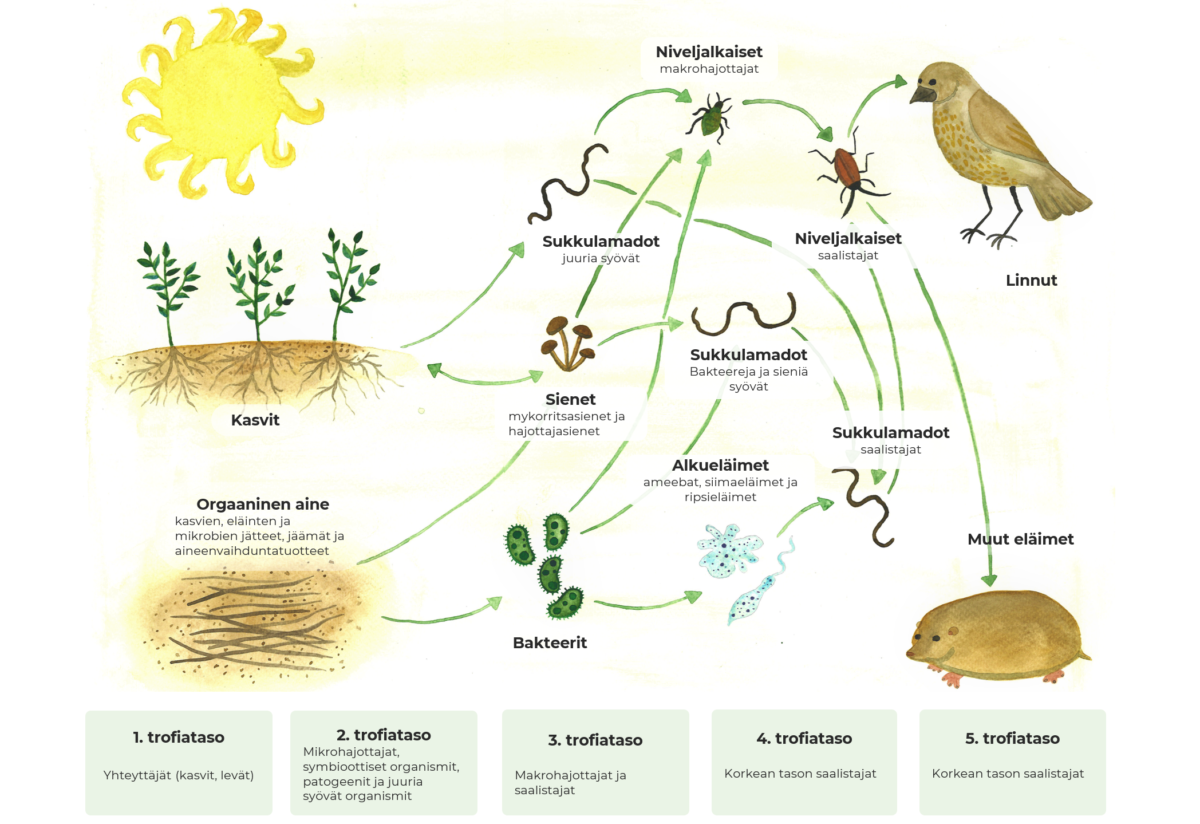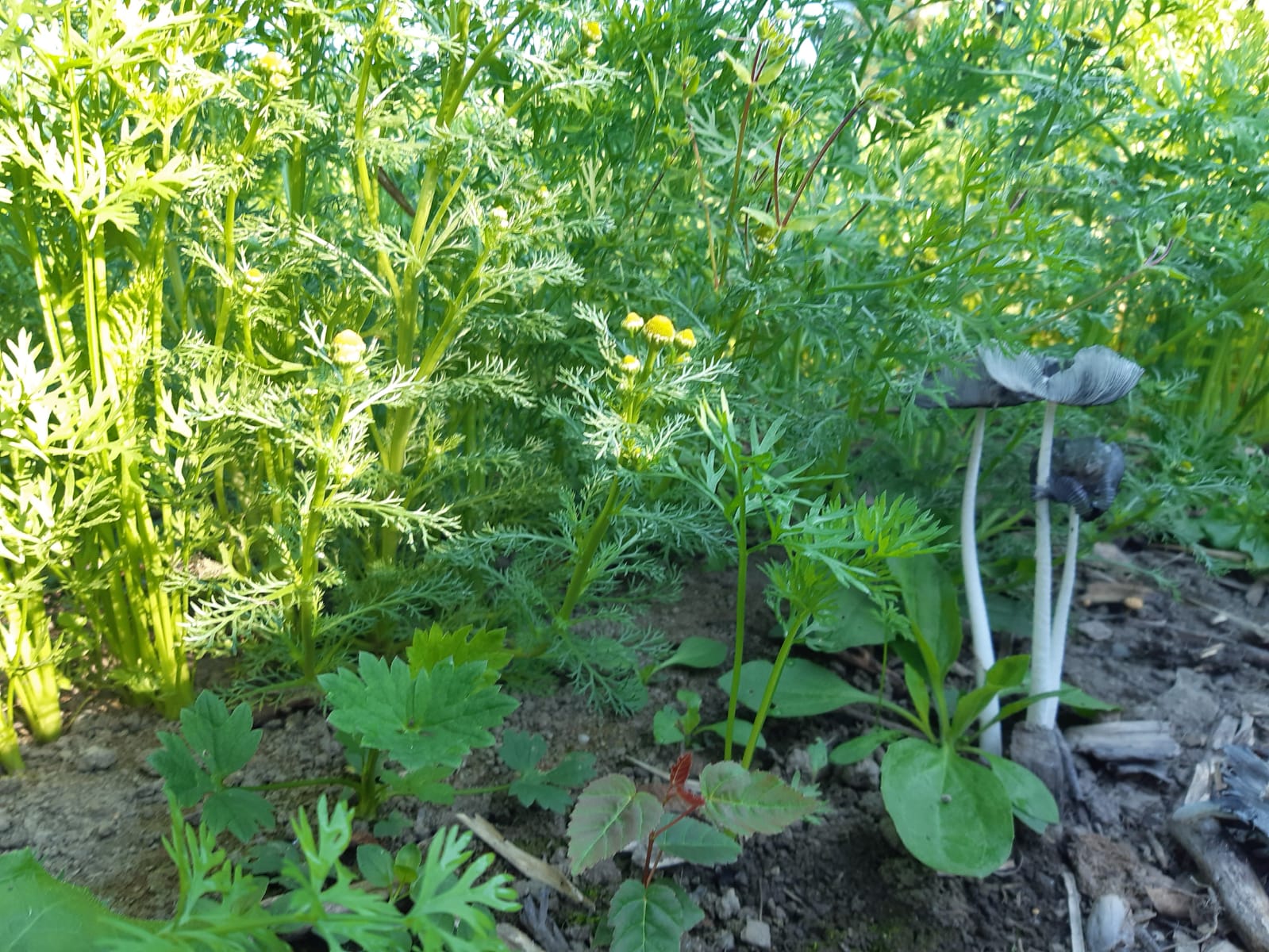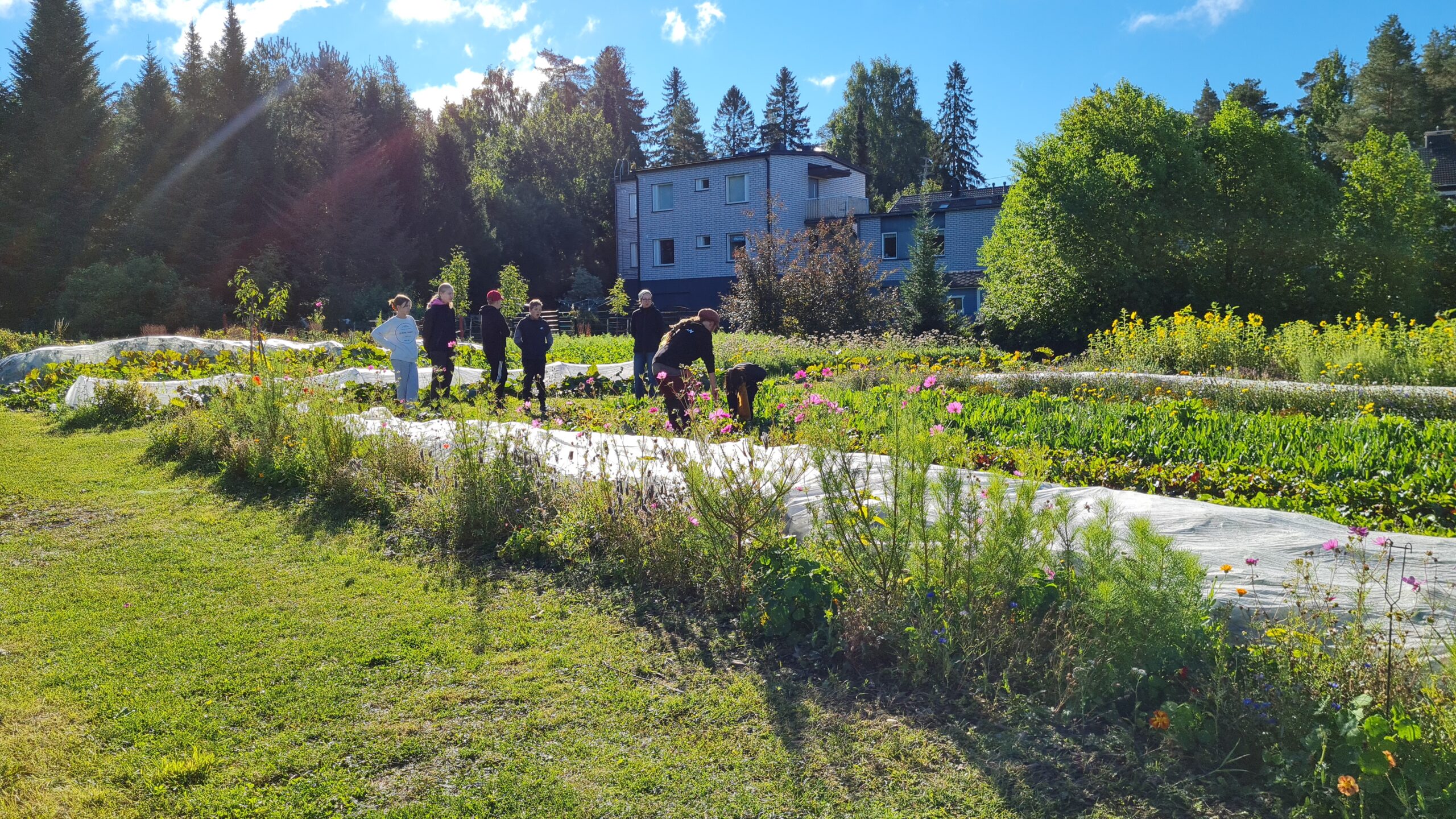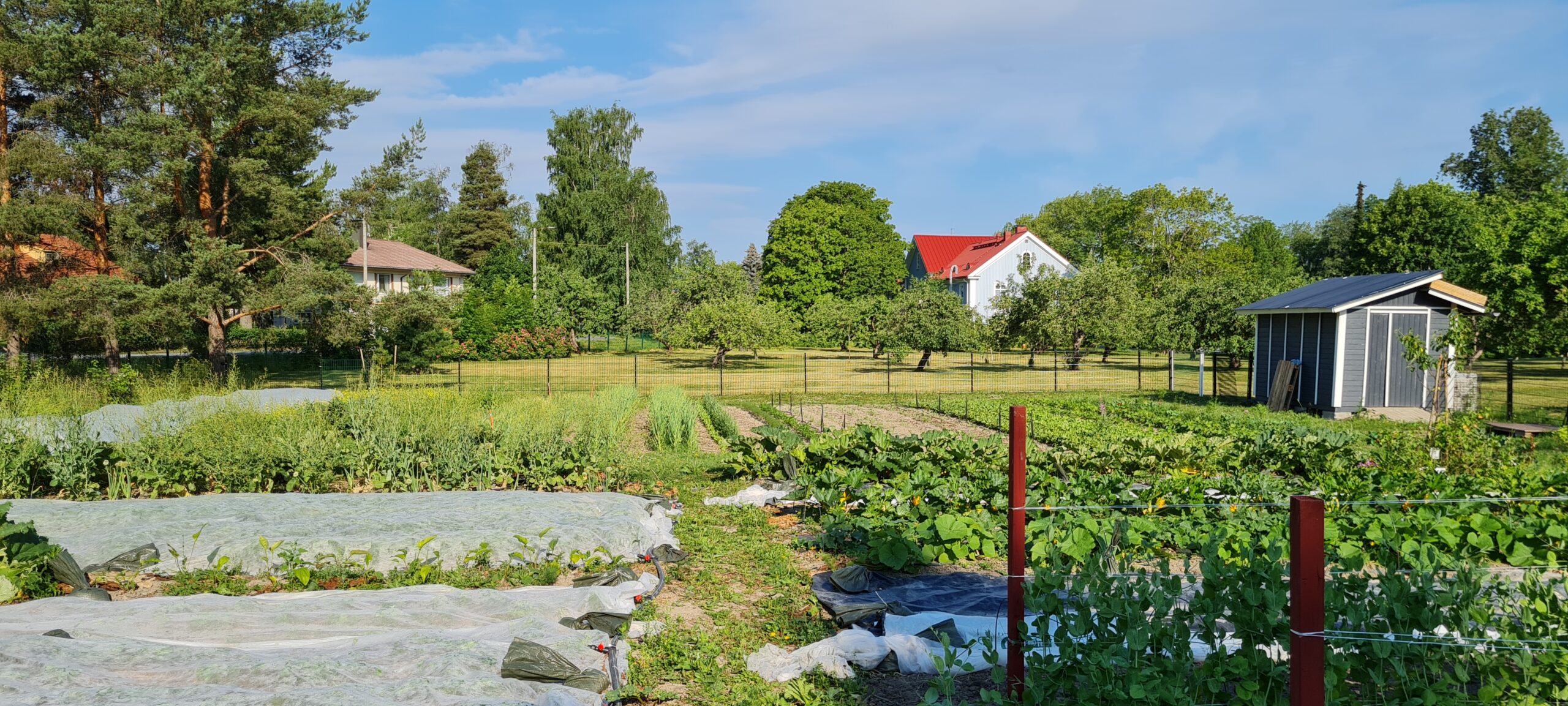In the course of the Fusilli project, AhlmanEdu has established a no-dig market garden as part of the Tampere Living Lab, where we grow vegetables using organic soil and plant management. Caring for the soil is at the heart of our operations, so we disturb the soil as little as possible, introduce many local plant species and, most importantly, use bioactive compost as the only source of plant growth enhancer.
The raised-bed no-dig vegetable garden at AhlmanEdu Vocational School actively promotes biodiversity. The vegetable garden is designed and managed with the aim of promoting a diverse ecosystem that encourages the presence of different plant and animal species. One of the key practices implemented in the garden is the use of bio-active compost made from local materials and rich in local micro-organisms. Soil micro-organisms such as bacteria, fungi, protozoa and nematodes are the engine, a fundamental link in maintaining and supporting a resilient, species-rich environment by cycling nutrients, building soil structure, improving water holding capacity and growing nutrient-rich plants and, as mentioned above, providing a base upon which plant and animal biodiversity can be built.

Description of the soil food web. Illustration by Jonna Kinnunen, AhlmanEdu
Tillage, or mechanical agitation of the soil, is normally done for the removal of weeds, also more optimistically called pioneer plants. However, tillage often disrupts the soil and its micro-organisms. When we cultivate the soil, we destroy the fungal filaments and stimulate bacterial growth in the soil, allowing the pioneer plants, or weeds, to come in and do their job. This challenge is answered by the basic principles of regenerative agriculture: minimising mechanical and chemical soil disturbance, increasing diversity and maximising plant cover. When we focus on these, we achieve better plant health and a more manageable perennial garden as we allow the natural biodiversity to take care of the soil. Soil diversity can be maintained through the use of many other alternative tools and methods also used to manage companion plants.
Mechanical disturbance, i.e. tillage, should therefore be avoided as much as possible. At AhlmanEdu we cultivate the soil with a flat tine cultivator with adjustable working depth. We try to cultivate the soil just before sowing or planting. Some species are planted into the soil without any tillage at all.

Diverse assortment of plants and life among the crops
Aside from no-tilling in the garden, some of the measures implemented to promote biodiversity include the use of bio-active compost, mulching, use of companion plants, and the cultivation of plants native to the local ecosystem to also encourage fauna to thrive. Mulching is another sustainable gardening practice that can support biodiversity. Composting organic waste helps to improve soil health and provides a habitat for soil micro-organisms, while mulching helps to retain moisture and promote healthy soil, which in turn supports plant growth and biodiversity.
Companion planting is the practice of growing different plant species together that benefit each other, either by repelling pests, attracting beneficial insects or providing nutrients to neighbouring plants. This practice helps create a more balanced ecosystem in the garden and reduces the need for chemical pesticides or herbicides.
We also use native plant species in the beds. Native plants are well adapted to the local ecosystem and provide food and habitat for local wildlife, including pollinators such as bees and butterflies. This helps to attract and support diverse insect populations, which in turn supports the wider food web. Features such as bird feeders and insect hotels to provide additional habitat for wildlife. These features create opportunities for birds, insects and other wildlife to find shelter, food and water in the garden, further enhancing the biodiversity of the ecosystem. By maintaining the natural biodiversity above and underground, we allow the provision of stability, resilience and ecosystem services that are essential for maintaining the health and well-being of both natural ecosystems and human societies – and it all starts with a healthy soil.


The multifunctional permanent bed garden
